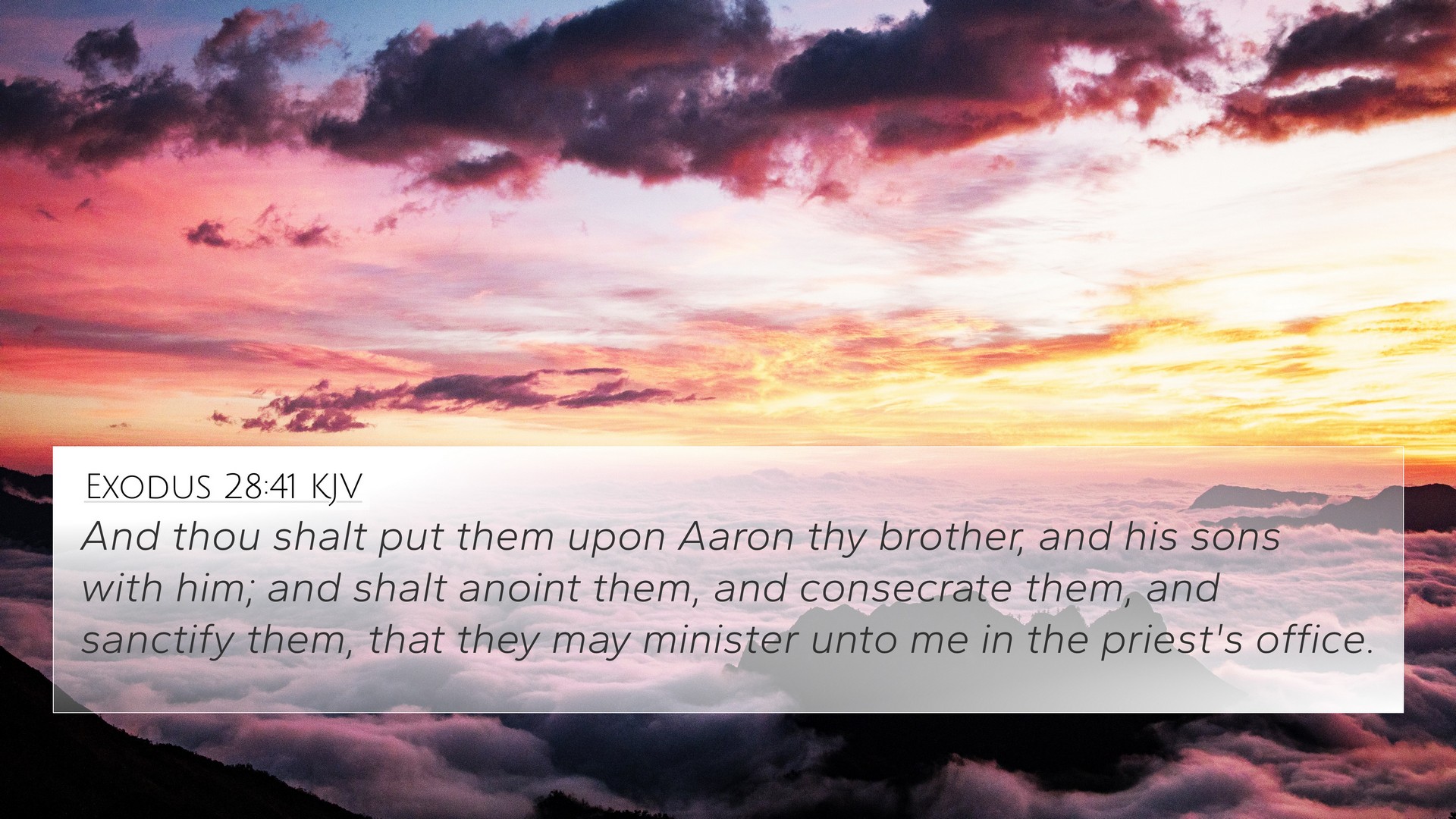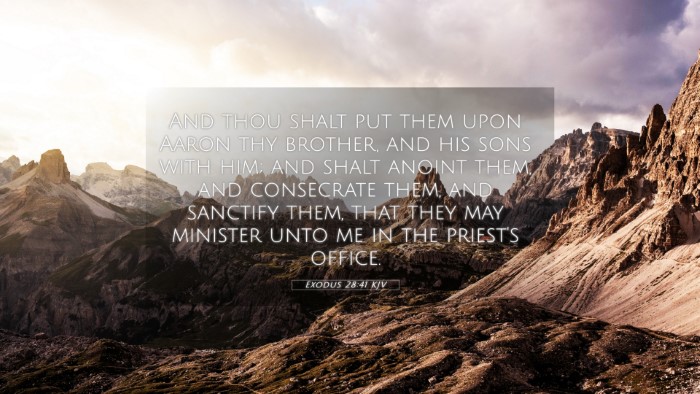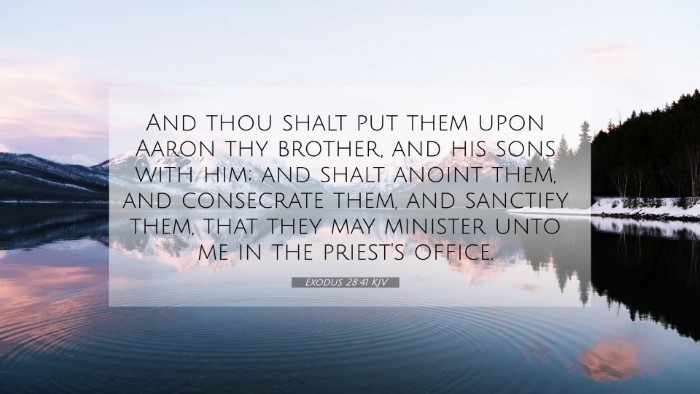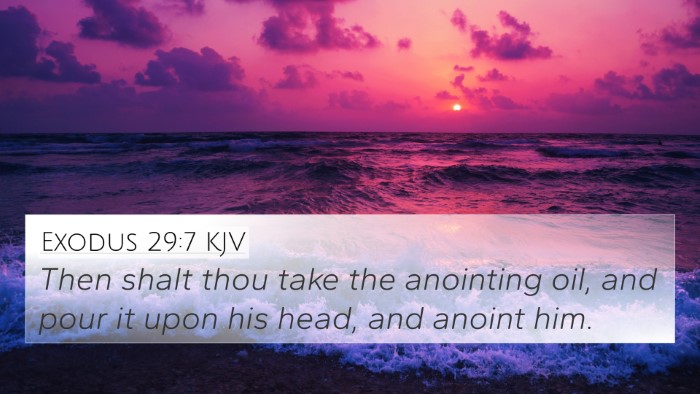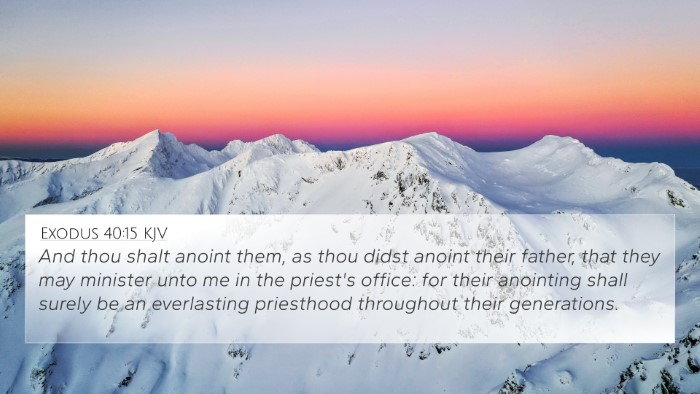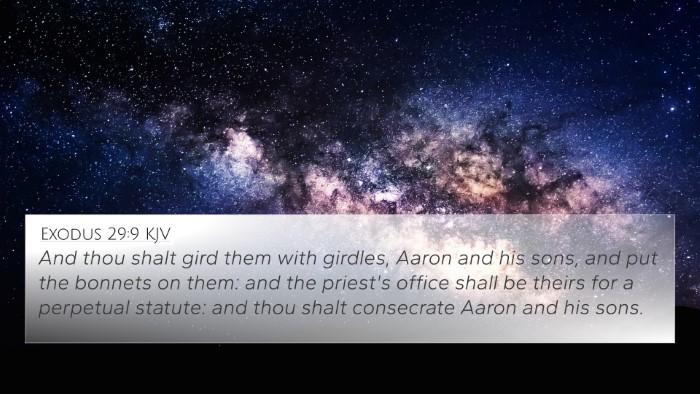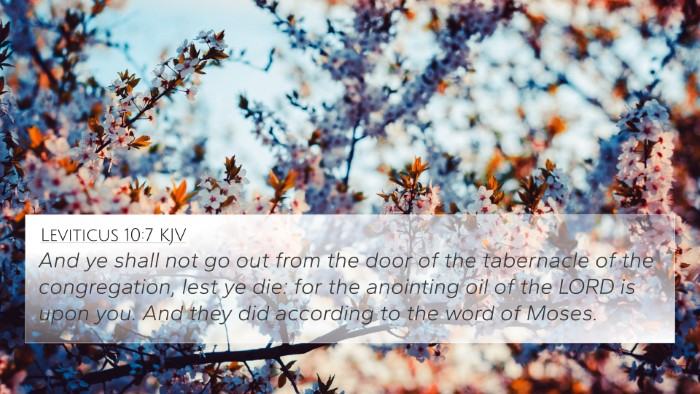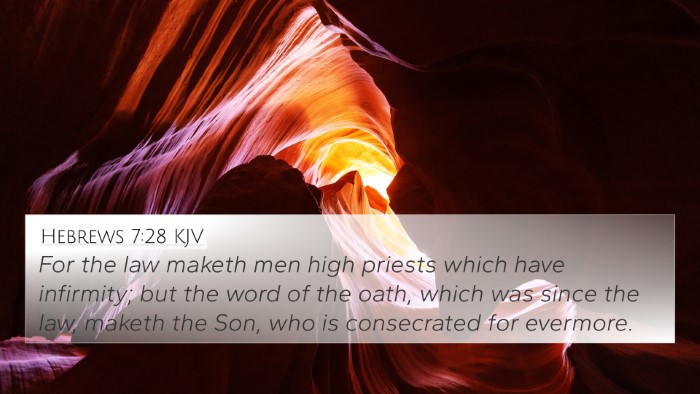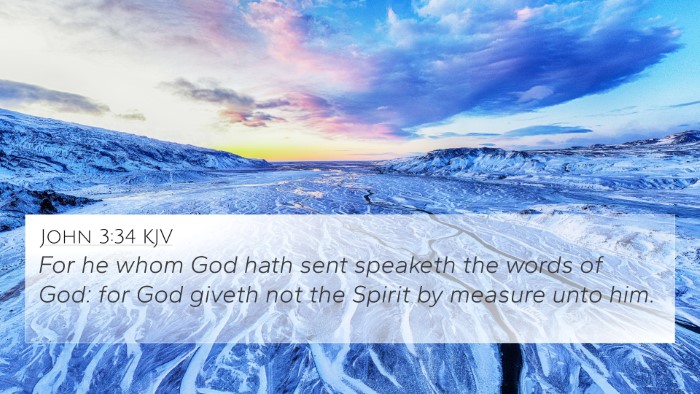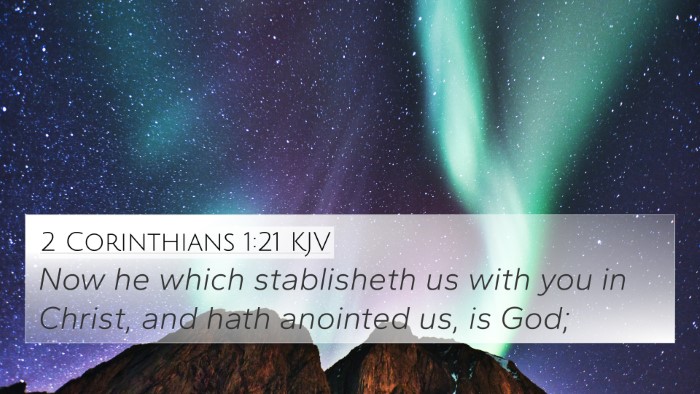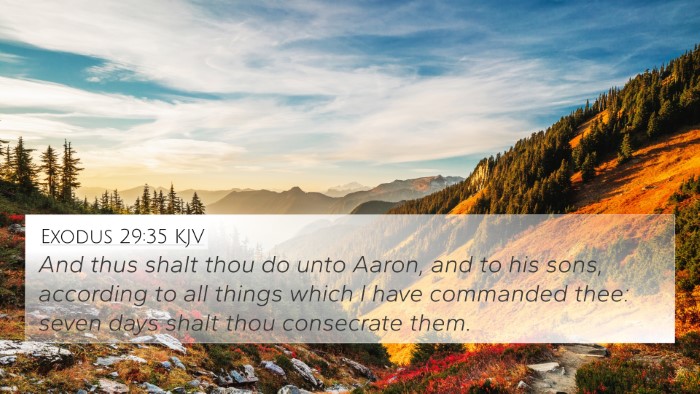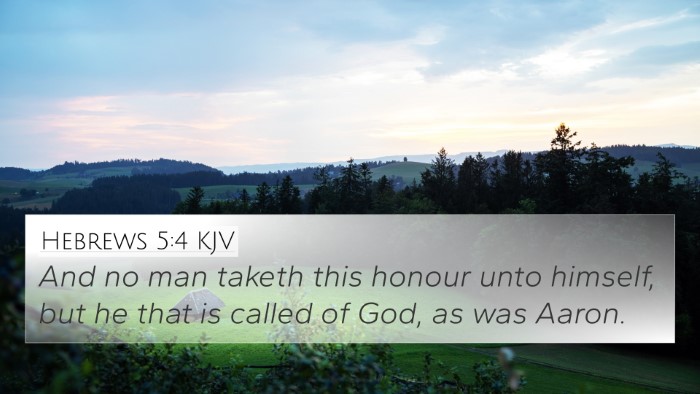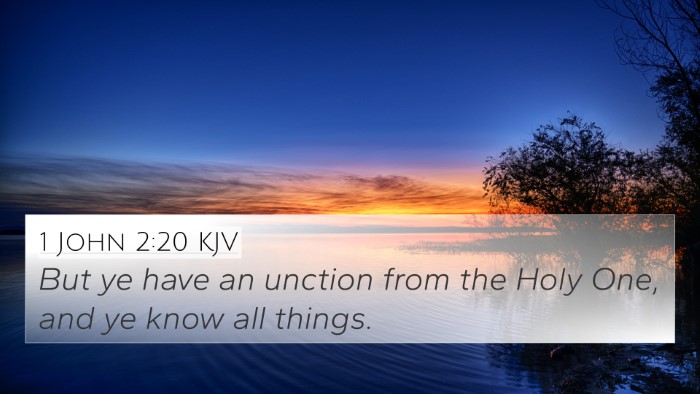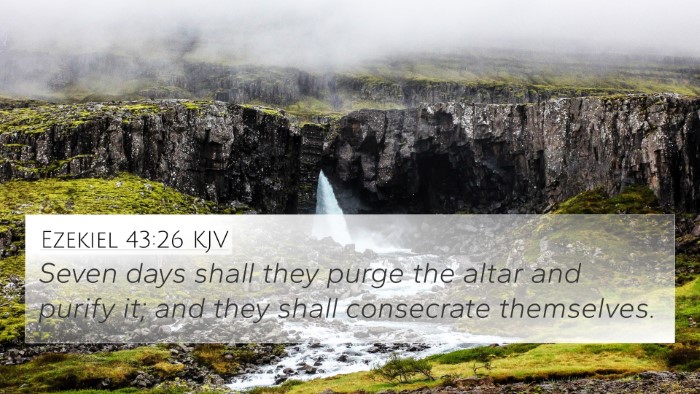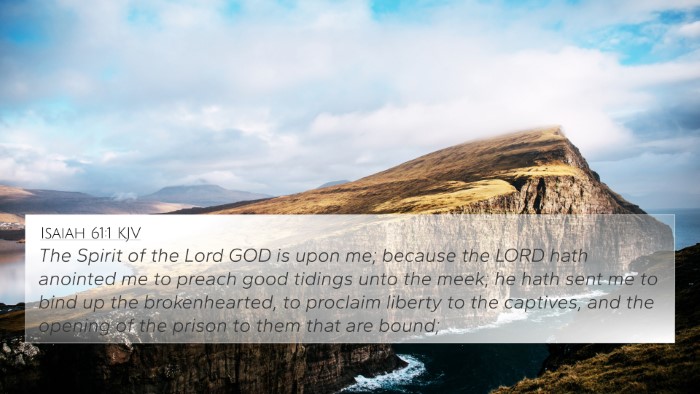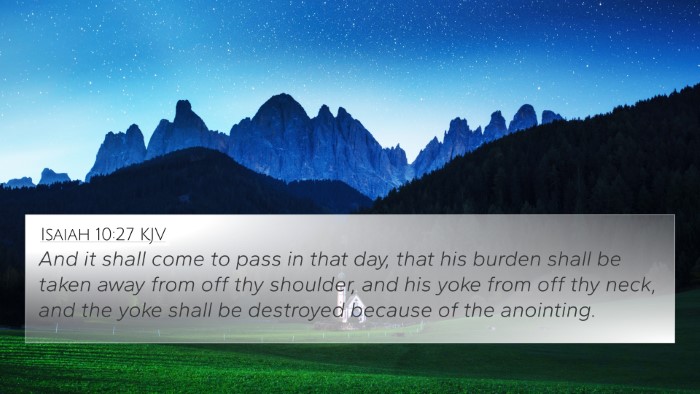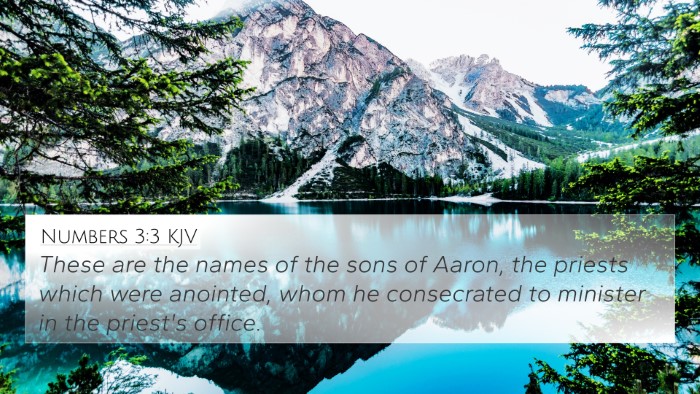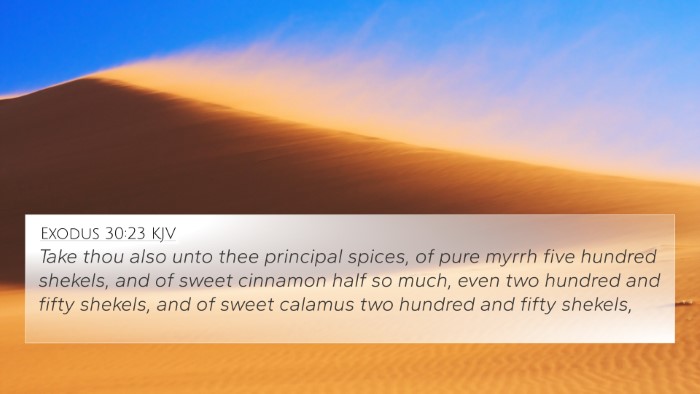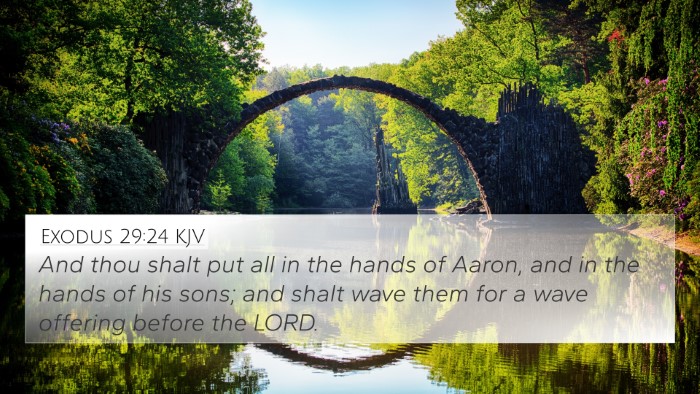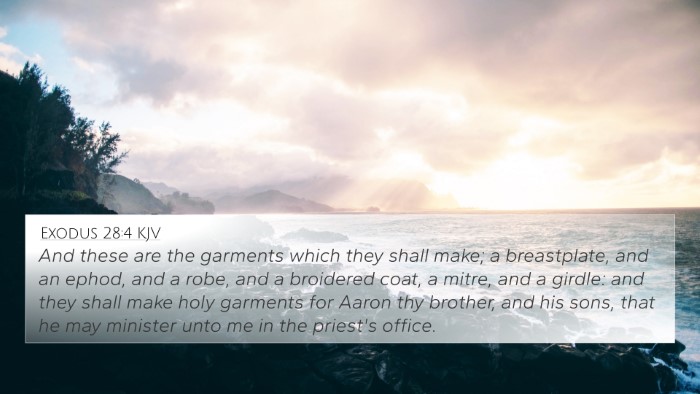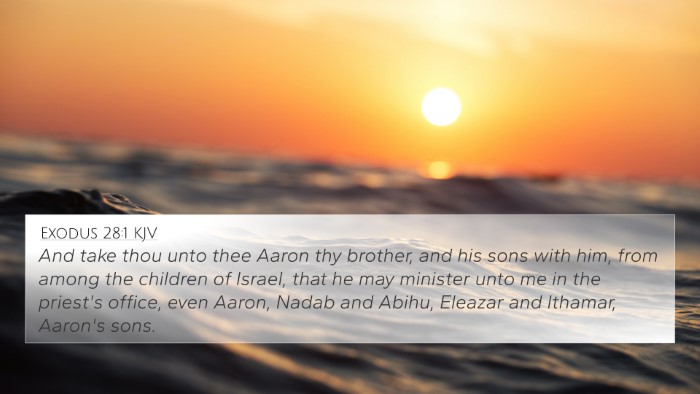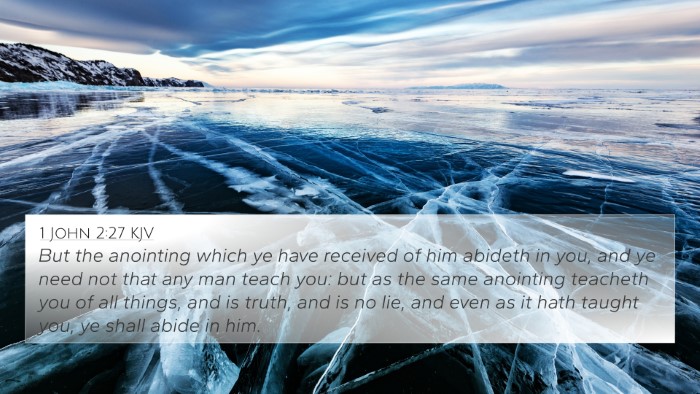Exodus 28:41 - Summary of Meaning and Commentary
Exodus 28:41 states, “And you shall put them on Aaron your brother and on his sons with him, and you shall anoint them and ordain them and consecrate them, that they may serve me as priests.” This verse represents a pivotal moment in the establishment of the priesthood in Israel and underscores several significant theological themes.
Contextual Background
This verse is part of the broader chapter where God outlines the garments of the priests, emphasizing their role and function within the community of Israel. It marks the ordinances that Aaron and his sons, as the first priests, are to follow to consecrate themselves for divine service.
Insights from Public Domain Commentaries
Matthew Henry's Commentary
Matthew Henry notes that this command illustrates the divine appointment of Aaron and his sons. The act of anointing symbolizes God's choice and blessing on the priestly line. The consecration signifies their separation unto God, marking them as sacred and dedicated for a holy purpose. Henry emphasizes that this vocation comes with responsibilities that also represent a spiritual lineage passed down through generations.
Albert Barnes' Notes
Albert Barnes points out that the process described in this verse demonstrates not merely a ritual but a thorough commitment to service. He highlights the importance of the anointing oil, which is associated with the presence of the Holy Spirit. Through this anointing, Aaron and his sons are empowered to fulfill their duties in the tabernacle, representing the people before God. This act serves as a foreshadowing of the New Testament understanding of priesthood in Christ.
Adam Clarke's Commentary
Adam Clarke provides insights into the significance of the garments worn by the priests, which were made for glory and beauty. He stresses that the act of consecration is not merely ceremonial but essential for the legitimacy of their priestly functions. Clarke further elaborates on the concept of servitude to God, indicating that such roles are established by divine ordination rather than human appointments, making it clear that God’s selection is fundamental.
Thematic Connections
This verse tightly interweaves with themes of divine calling, spiritual authority, holiness, and the role of intercession. Here are some related themes:
- Divine appointments in leadership (1 Samuel 10:1)
- The importance of sanctification (1 Peter 2:9)
- Connection between the Old and New Testament priests (Hebrews 4:14-16)
- The significance of anointing in service (James 5:14)
- The concept of mediation through the priesthood (Hebrews 5:1)
- The glory of God reflected in priestly duties (Isaiah 61:6)
- Faithfulness in serving God (Colossians 3:23-24)
Related Bible Verses and Cross-References
Exodus 28:41 has numerous connections within the Scripture, further enriching its meaning:
- Leviticus 8:12 - Anointing of Aaron as a priest
- Numbers 3:10 - The role of the Levites
- 1 Peter 2:5 - Believers as a royal priesthood
- Hebrews 5:4 - No one takes this honor upon themselves
- Isaiah 61:6 - A kingdom of priests
- Luke 10:1 - Christ sending out the seventy
- Revelation 1:6 - We are made priests to His God
Applications in Study and Reflection
Understanding Exodus 28:41 through the lenses of these commentaries encourages comprehensive Bible verse analysis and highlights the significance of priesthood, both historically and theologically. Creative methods such as thematic Bible verse connections help in teaching and sermon preparation by using these insights and cross-references as foundational texts.
This exploration of the priestly garments and the act of consecration does not only reflect on the Israelite community but also prompts believers today to consider their own anointing and calling in Christ’s service.
Conclusion
Exodus 28:41 provides profound insight into the sanctity of the priestly role, pointing to God’s intentionality in setting apart leaders to represent Him. By studying the connections between Bible verses, particularly the significance of priesthood across both testaments, the faithful can better understand their scriptural heritage and mission.
